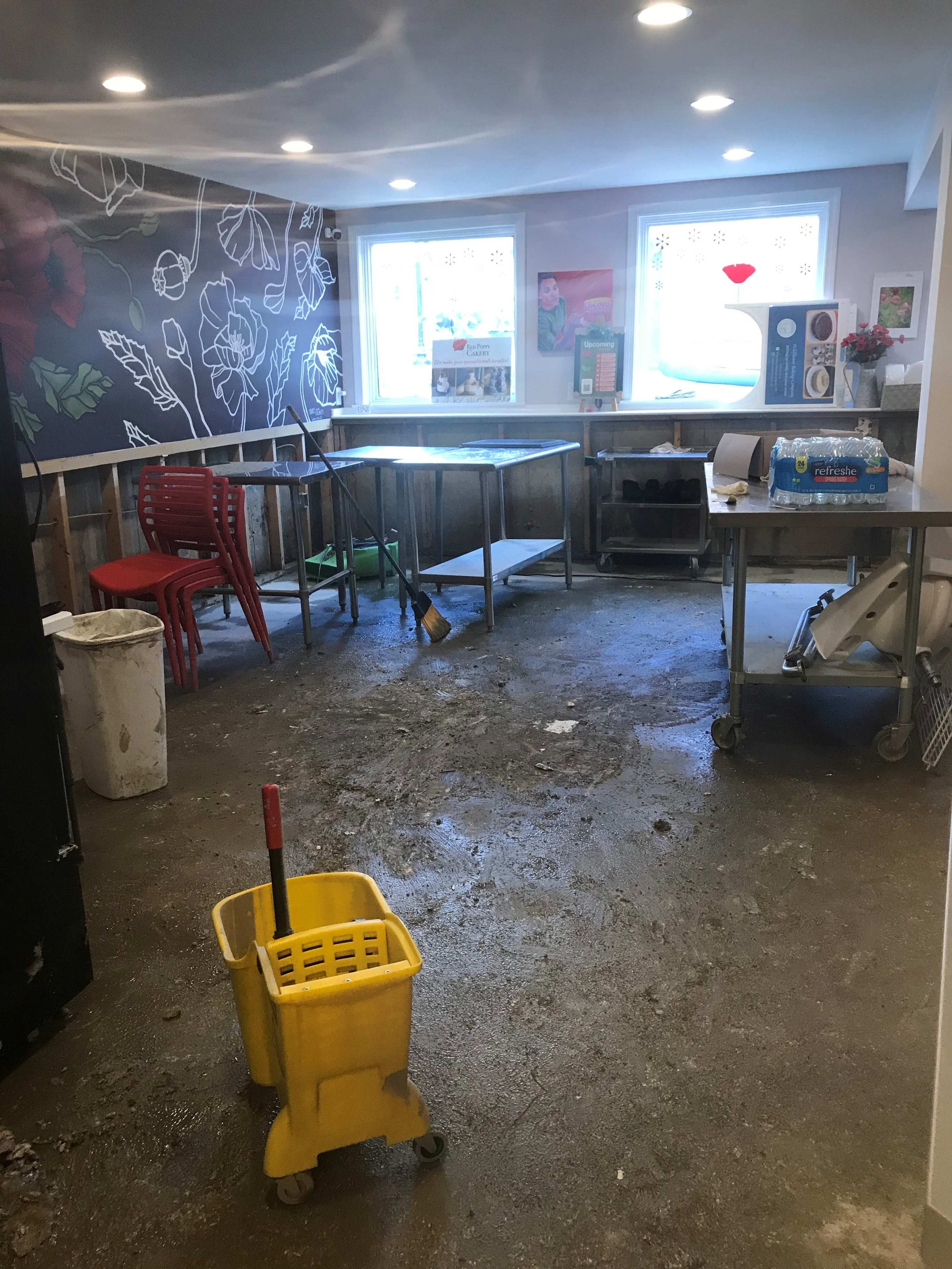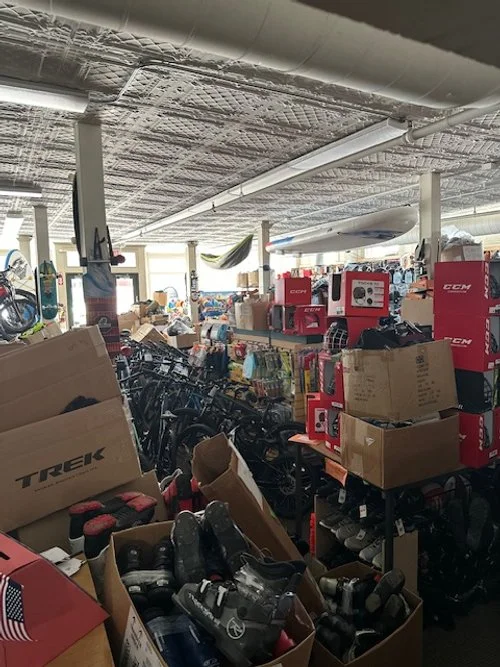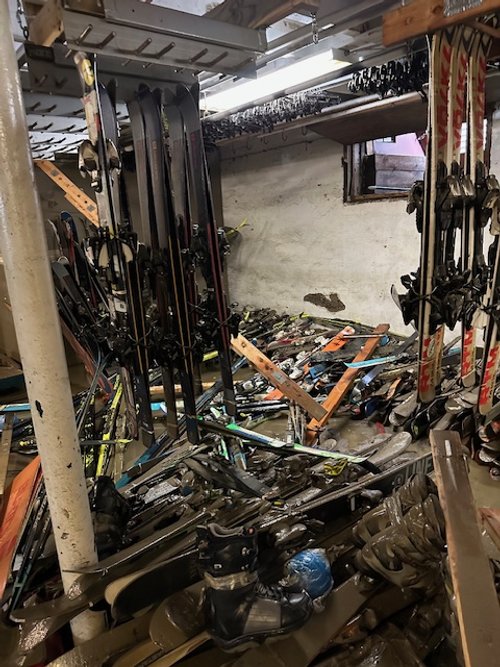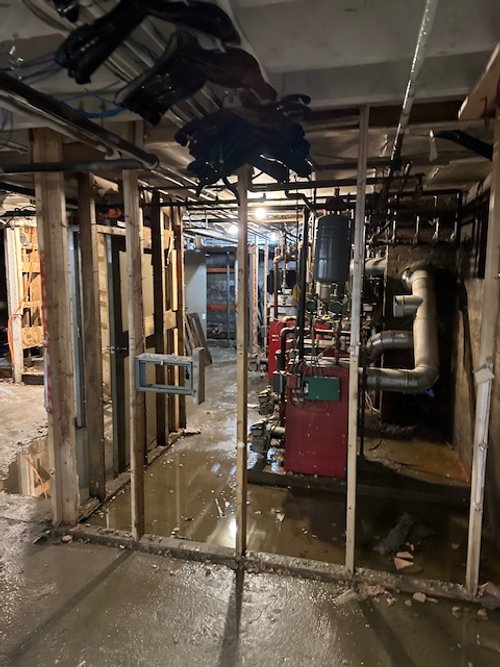Community support buoys Waterbury’s flood-hit businesses
October 15, 2023 | By Shannon Flaherty and Will Thorn | Community News Service In early July, when the Winooski River poured over its banks during rainstorms that swept across Vermont, it inundated the basement of Bargain Boutique, ultimately reaching the first floor and destroying much of the thrift shop’s contents.

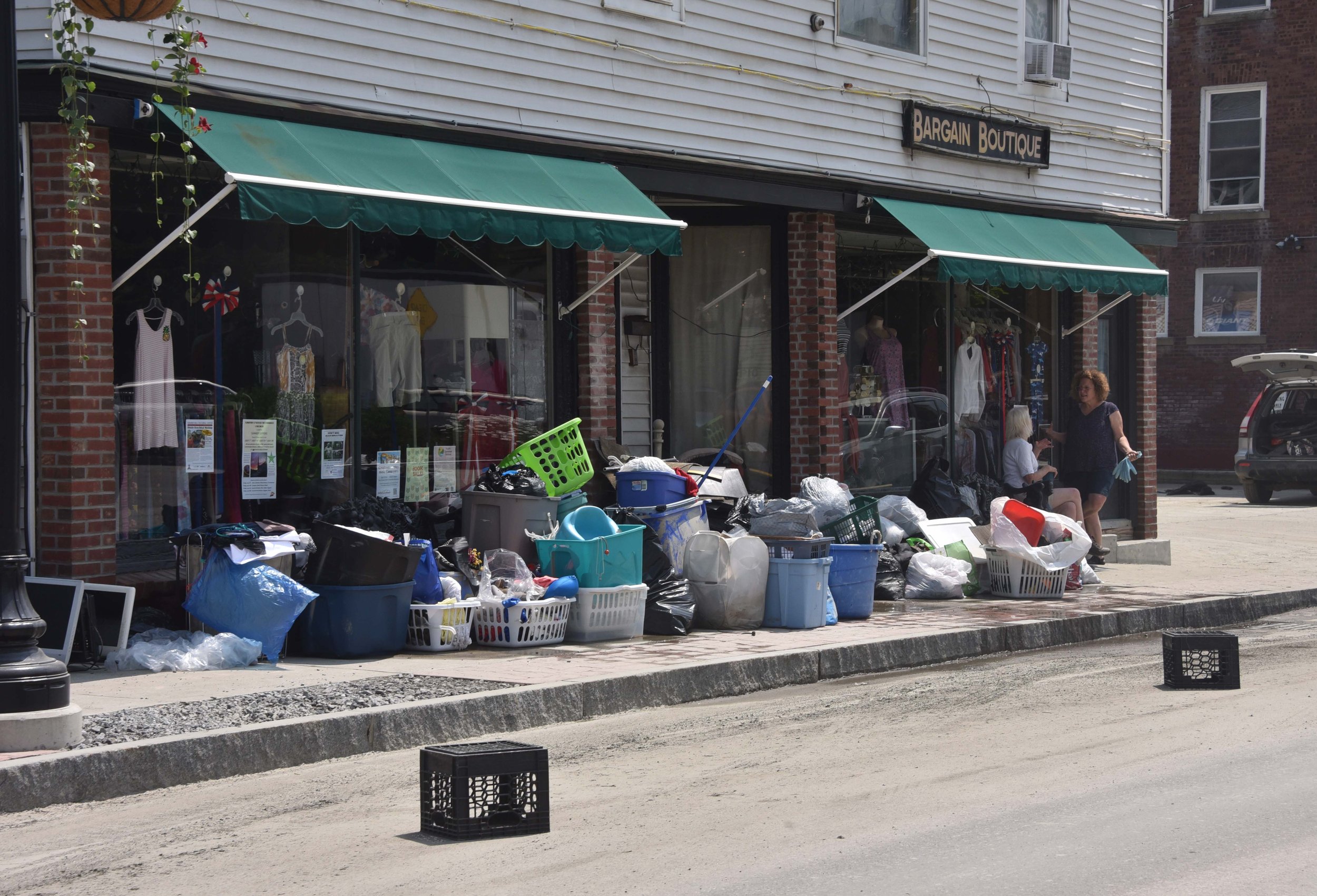
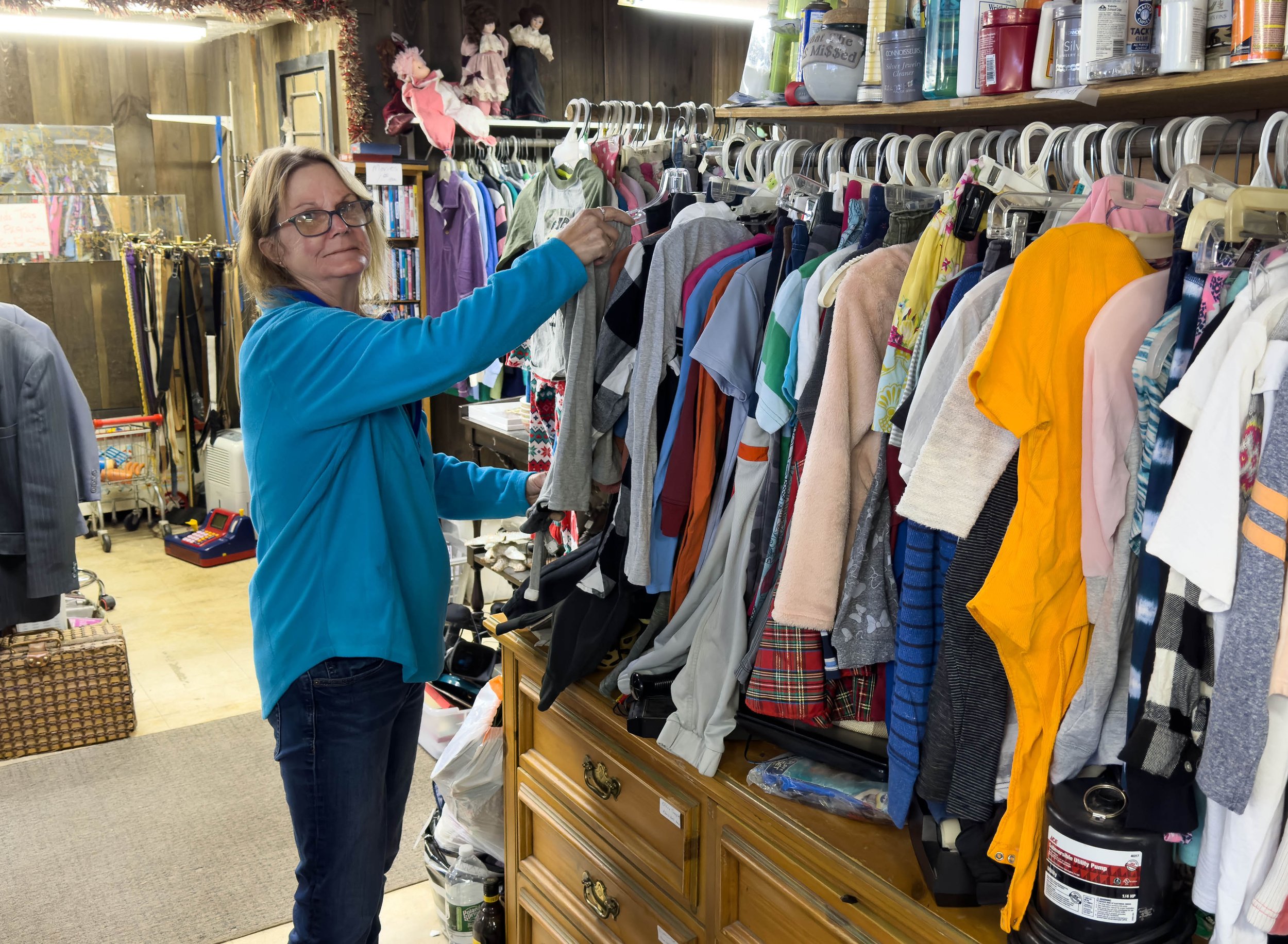
“Anything that wasn’t hanging on a rack was ruined,” said Kathy Cummings, the boutique’s owner. A drain plug backed up during the flooding, which made pumping out water from the basement a five-day process.
When the floodwaters finally receded from buildings and streets, they left behind a blanket of silt, mud, and distraught business owners. That’s when the cleanup began for Cummings, among about 16 neighboring businesses that sustained damage, according to Revitalizing Waterbury, the local economic and community development organization. Those proprietors have spent the past three months scrubbing, repairing, recouping and calculating their losses as well as welcoming back customers as soon as possible.
An outpouring of assistance followed the flood from volunteers within and outside of Waterbury. At Bargain Boutique, 25 to 30 people showed up for four or more days, Cummings said. Kore Power, a battery storage-cell developer located nearby in downtown Waterbury, sent 17 workers out into neighborhoods for several days to clean up at homes and businesses including Cummings’ shop.
“We lost inventory, but we just keep getting tons more,” Cummings said. The community support allowed Bargain Boutique to reopen three weeks after the flood. Fortunately for the store, September and October are typically its busiest months, so Bargain Boutique has regained some sales momentum, she said.
For Waterbury businesses, the deluge looked like an all-too-soon repeat of Tropical Storm Irene in 2011.
Prohibition Pig Brewery and Restaurant gradually reopened in August after staff and volunteers cleaned out both flooded basements where kitchen and brewing operations are located. Photo by Gordon Miller
“This is a town that knows how to deal with a flood,” said Karen Nevin, executive director of Revitalizing Waterbury.
Local pottery artist Jeremy Ayers applied that past experience by moving all of his work before the flood began as a precaution. In the basement of his home, water rose to four inches below the subfloor; just a little reached the floor and barn of his studio next door, he said.
“The worst part of a flood isn’t the water, it’s the mud,” Ayers said.
Ayers had cleanup help from 15 to 20 people at a time during the days immediately after the water receded. He has since received some money for recovery from the Vermont Arts Council and the Craft Emergency Response Fund for artists.
Pitching in and cleaning up
On Monday evening, July 11, steady rain fell and began filling Randall Street, making its way up Elm Street. Red Poppy Cakery and the Wine Vault at the corner with Main Street were closed. A hand-written note on the joint entry door left over the weekend carried this worried but hopeful message: “We will be closed on Monday? Hope & pray we don’t have Irene II. Stay safe & we will see you Wednesday. The Wine Vault.”
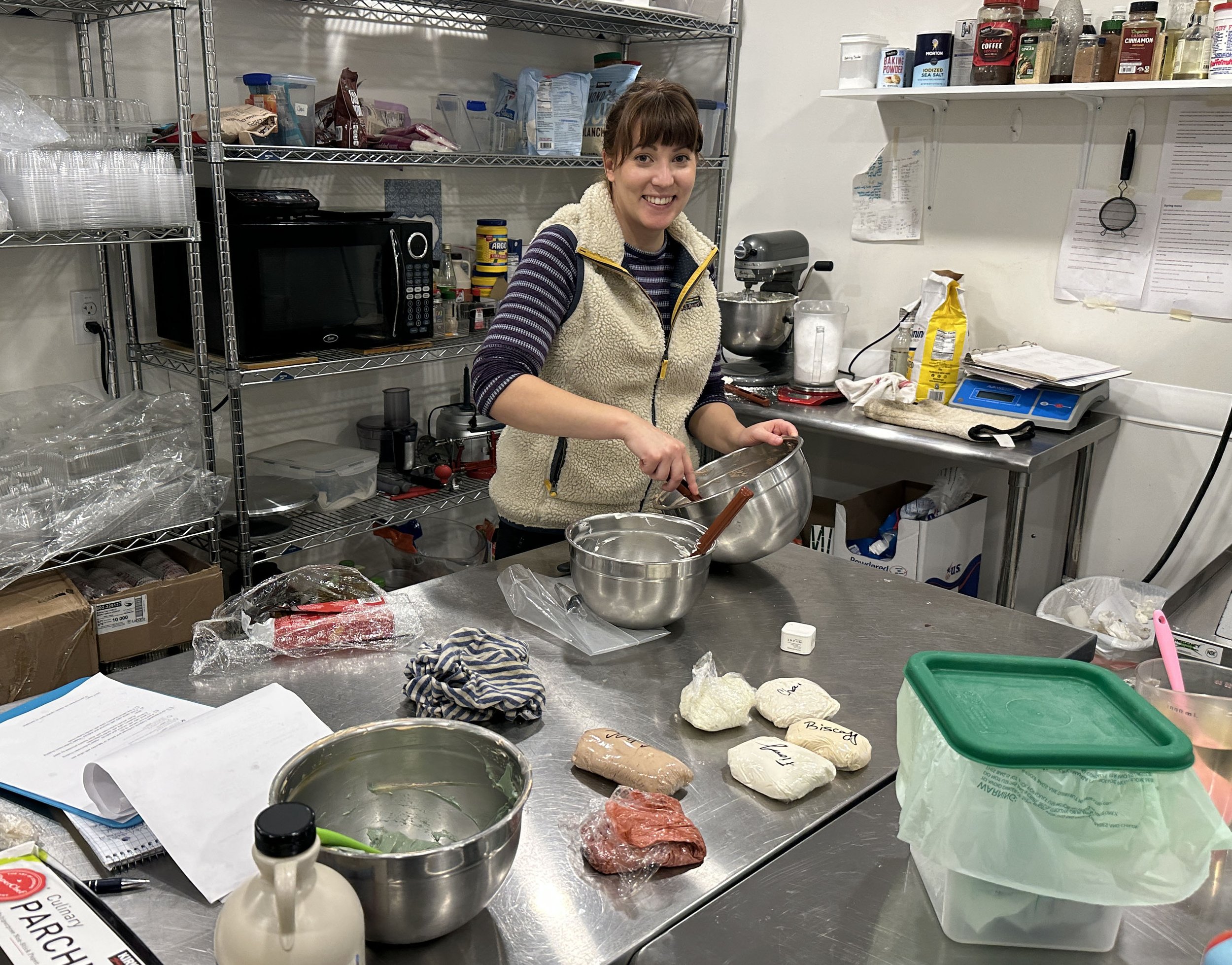
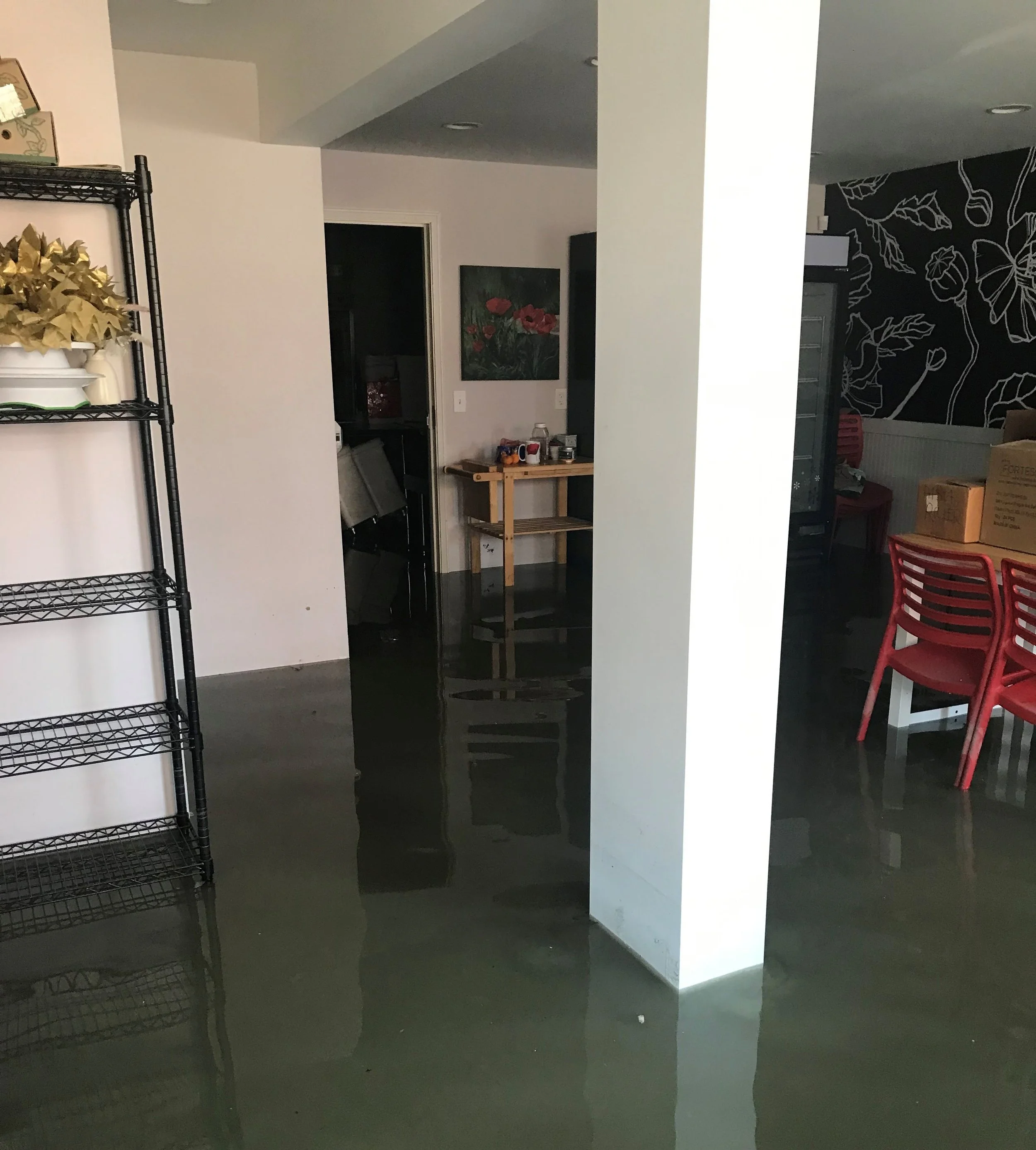
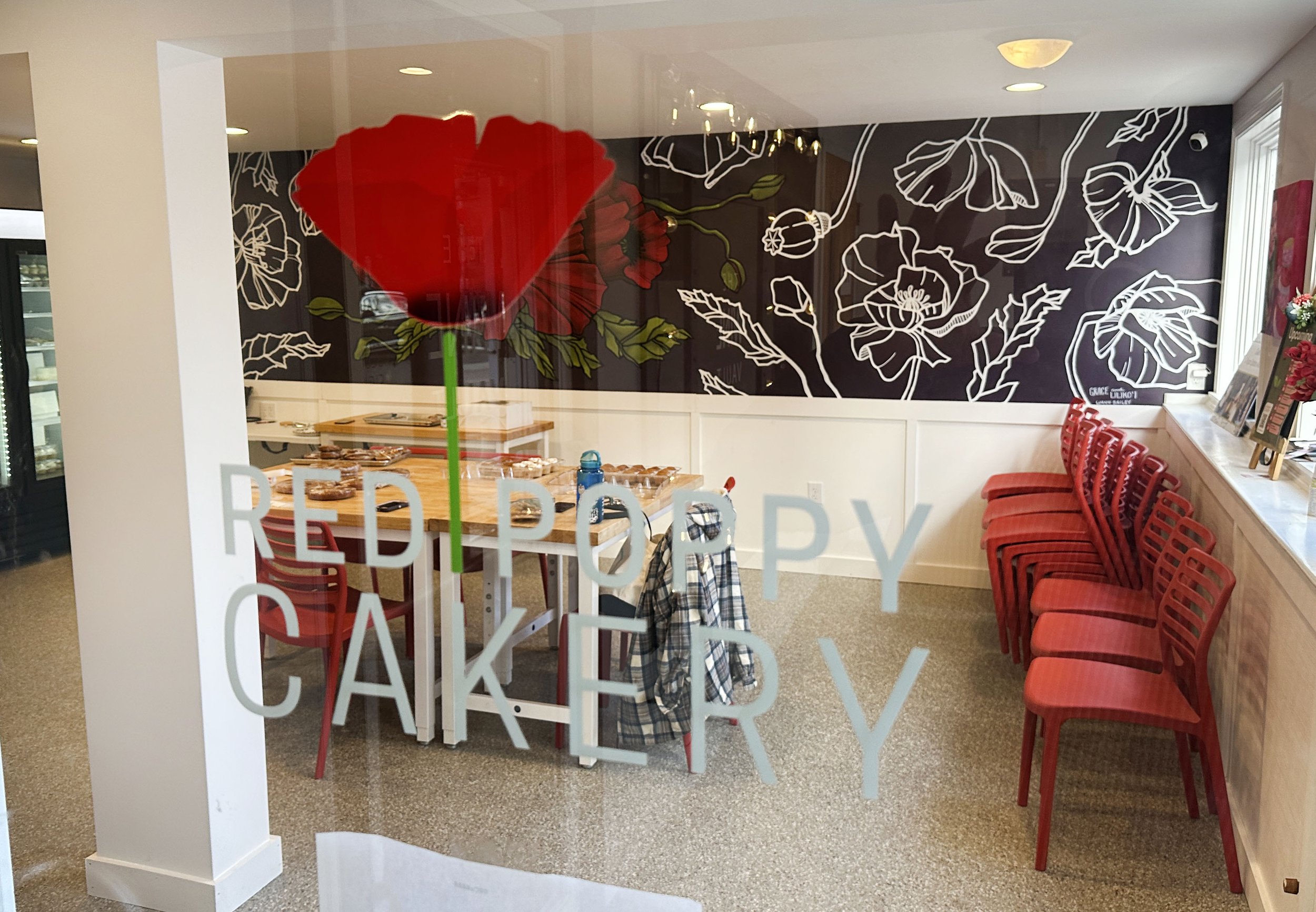
While it wasn’t Irene, the storm wreaked significant havoc for both of the street-level businesses.
May to October is the peak wedding season for Red Poppy Cakery when the custom cake business normally has four to 10 weddings a week, owner Janina McCue said. Fortunately, McCue had no weddings booked the week of the flood. The following week, McCue rented out Stowe Street Cafe’s downstairs commercial kitchen space to fulfill Red Poppy’s few wedding orders, she said.
During the flood, Red Poppy’s space took on 18 inches of water and lost a fridge, a washer, and about $1,000 worth of inventory. Situated slightly below street level meant that McCue had to rip out three to four feet of drywall. She and her two employees shouldered most of the cleanup, but they didn’t work entirely on their own.
“This community is incredible,” McCue said. “We had all kinds of people just showing up and helping power wash stuff, scrubbing stuff, bringing lunches, bringing food.”
McCue said she has received a $2,500 grant from Capstone Community Action in Barre and $325 from the Central Vermont Chamber of Commerce. She said she is waiting for funding from the state’s Business Emergency Gap Assistance Program.
Just down Main Street, Waterbury Sports was shut down for two weeks to pump out and clean its basement, which was submerged during the flooding. The water came up to the top basement step — about three inches from the main floor, where the business’s three owners had moved all the bikes, skis and other outdoor gear out of the basement, packing it tight into the shop’s main retail space.


A small grant covered the costs of cleaning supplies, but little else.
“Until we got the basement clean and dry, we couldn’t move product down there,” said Ryan McGuire, who co-owns the South Main Street store with Chuck Hughson and Caleb Magoon. “We had tons of volunteers help to clean up the mess left after we pumped out the water.”
Nate Dunbar, owner of the Craft Beer Cellar, said he appreciated the widespread volunteer brigade that assisted businesses besides his own.
Darn Tough employees were given time off from the nearby sock factory to volunteer and help distribute new socks to clean-up crews to help keep their feet dry.
By Friday, less than four days after the rain stopped, Prohibition Pig put out a full barbeque lunch spread outside its Elm Street brewery for everyone involved in the cleanup. U.S. Sen. Peter Welch and staff stopped by on their tour of flood-affected communities across the state.
Revitalizing Waterbury had purchased 1,000 bottles of water for the Waterbury Arts Fest, which was scheduled for the weekend following the flood. That got postponed to late August and the water instead was distributed to those feeding the clean-up helpers, Nevin said.
“Waterbury is an incredible town to live in,” Dunbar said.
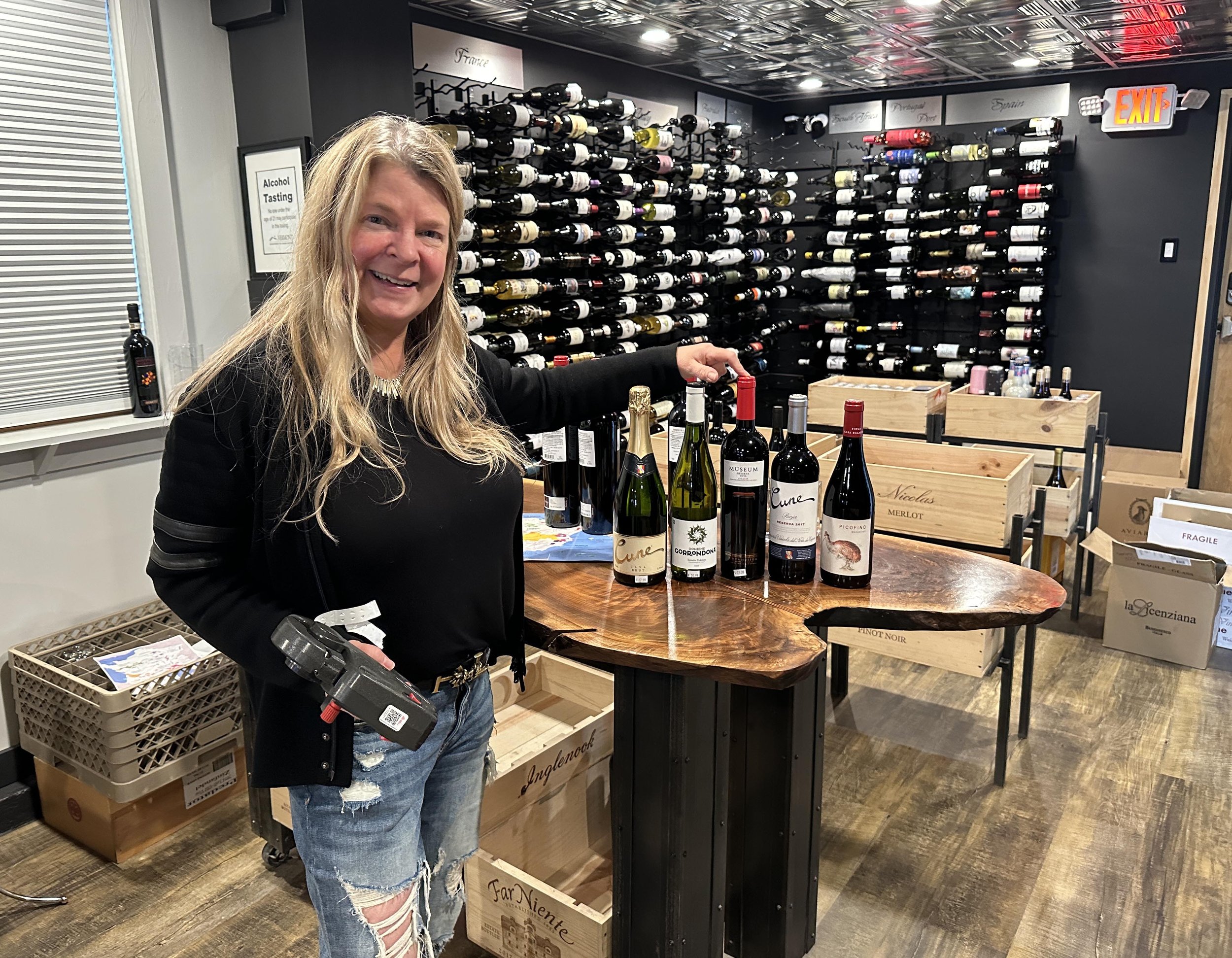
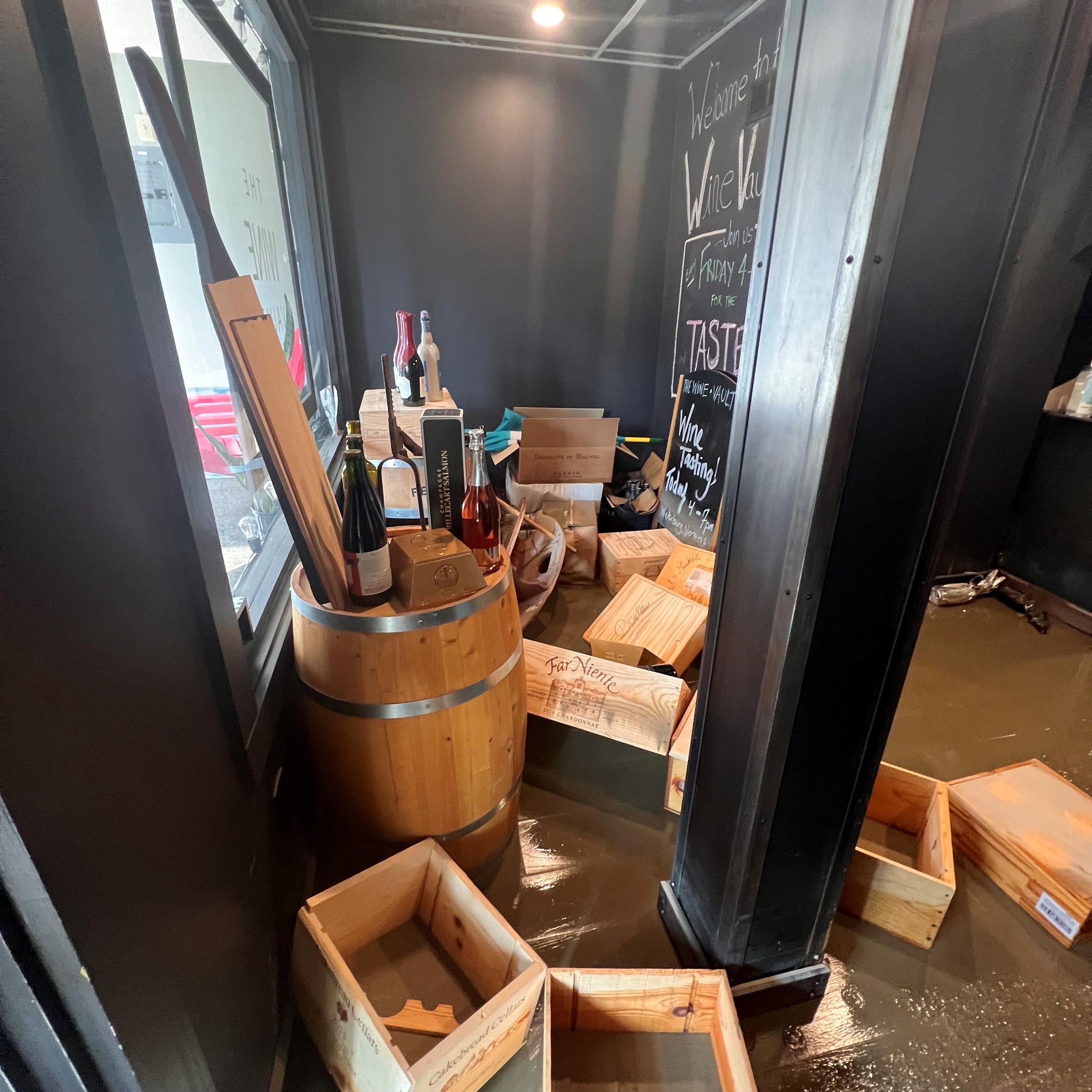
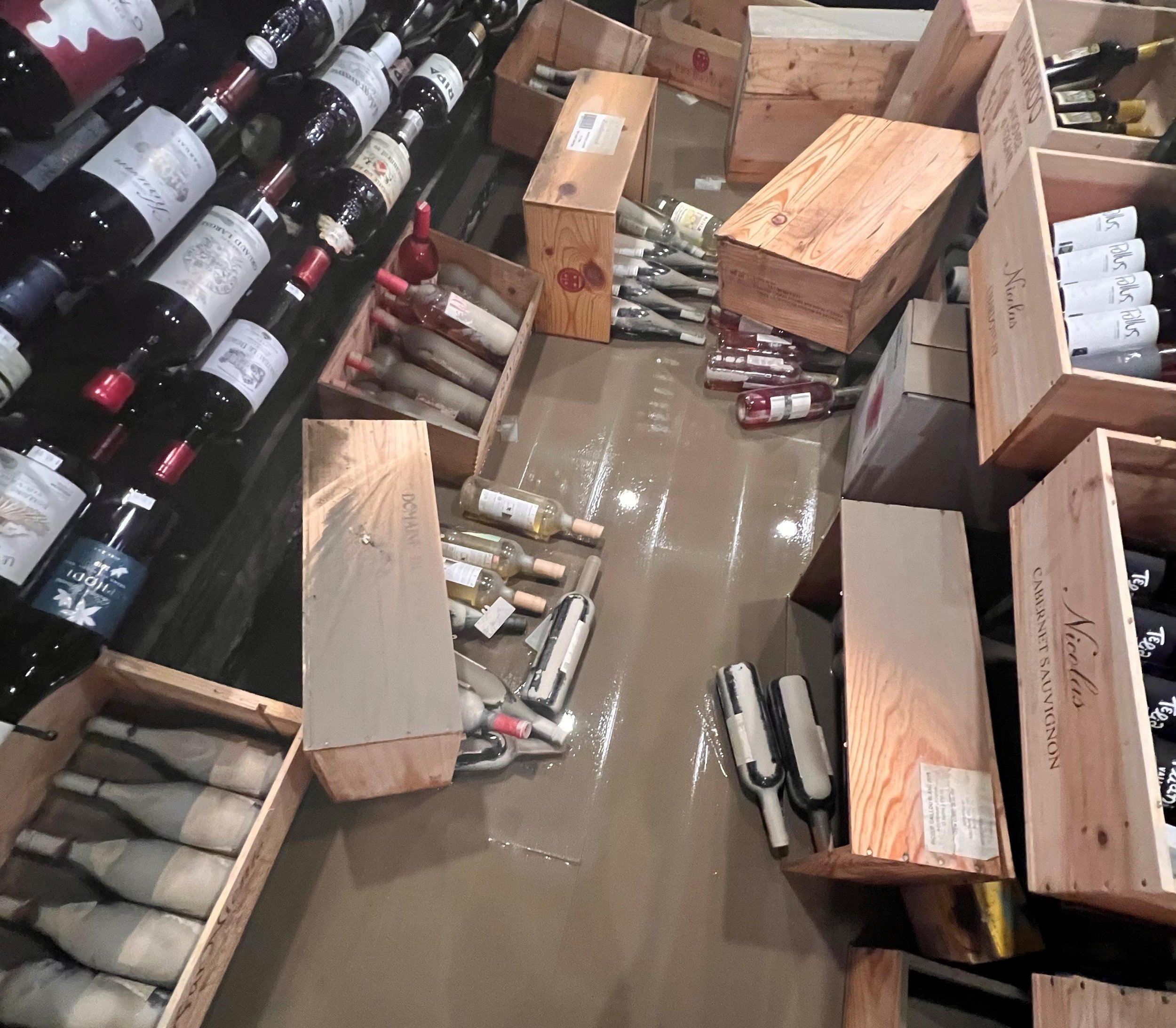
Next door to the beer market, the Wine Vault lost around 20 cases of wine and a few cold display cases to the flood. But owner Anastasia Kohl saved much of her inventory by using third-floor space where her landlord allowed Kohl to store her wine. “He really saved the day,” she said.
Sixteen volunteers showed up to help her move the inventory. Still, she has since had to redo the bottom half of the drywall and the floor in the main store space. With construction crews spread thin for flood recovery work, the Wine Vault’s job took several weeks to complete.
Between the damage and the lost sales, Kohl estimated that the flooding cost her business about $50,000. She said she has received no grant money.
The shop opened as of Sept. 1 and Friday night wine tastings have resumed. Kohl said she also hopes to have a wine bar with snacks open in a couple of months as well.
Click to enlarge the photos above and see captions
Apartments, preschool, playground back on track
Across the river in Duxbury, River Branch Community School located in the former Duxbury Elementary School stayed dry on the upper floor of the building during the flood. But two ground-level apartments withstood the majority of the building’s damage, said Chelsea Bardot Lewis, chair of the preschool and child care center’s board of directors. Of particular concern for the center’s operation was the playground that sits along the Winooski River. It was submerged, too. “It was heartbreaking to see that water coming up,” she said.
Bardot Lewis said the community response was “overwhelming,” as many volunteers and alumni parents offered to lend a hand on cleanup day. Items that couldn’t be salvaged were collected into dumpsters.
The playground, covered by an inch of silt after the water subsided, posed a challenge. The state Department of Health advised the school to treat anything flood waters had touched like toxic waste. Following the advice of school parents, including an emergency physician and a plant and soil specialist, volunteer teams power-washed and replaced equipment, as well as the wood chips and playground sand. Volunteers also helped with electrical and demo work inside the apartments.
The building that the school owns now has more flood-resilient features, such as new waterproof flooring in the apartments, Bardot Lewis said.
The community response saved the school huge recovery costs and allowed it to reopen in time for the school year after it was temporarily relocated to Brookside Primary School in Waterbury, Bardot Lewis noted. A school fundraiser also collected $15,000 in donations to help cover the expenses, she added.

